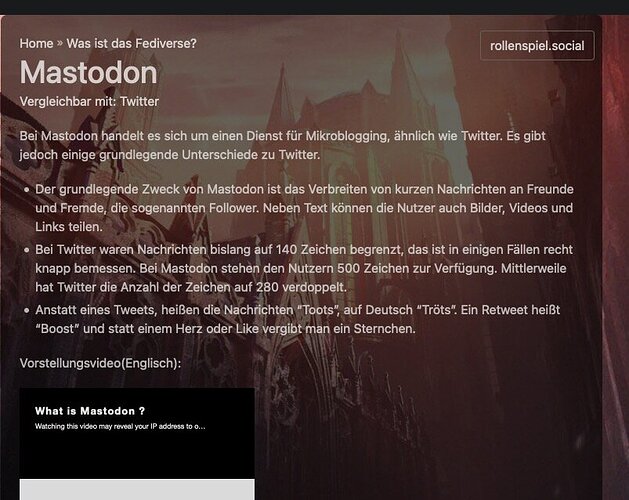Welcome to SocialHub @Tealk!
You address something that is a common issue on the Fediverse. The technologists creating and hosting the apps, and fedizens in general have trouble describing stuff in ways that the general public understands and finds appealing enough to actually use.
Part of this probably stems from an overly technical mindset and focus, and also emphasizing on a set of values (e.g. privacy, software freedoms, decentralization, open standards) that regular social media users don’t really care about.
So this is a great topic.
The SocialHub community is quite technical too, but we want it to become more diverse. Much needed are more people who help ‘productize’, do advocacy and ‘PR’ and all that important non-dev work. May I suggest we change the topic title to e.g. “Describing Fediverse apps in ways people understand”? Or “Creating appealing Fediverse app descriptions for mainstream users”.
Note that you can also post this to our Lemmy space and cross-post to !fediverse@lemmy.ml to get input.
Right now I lack the time to delve deep into your descriptions, but it is something I may address in future on Fedi Foundation site (in draft) in future. Note also that e.g. @light of Fediverse Party has the same issue, and - given time and opportunity - might create a whole different site variant for the same audience you are trying to reach.
Quick peek at Friendica News item:
Friendica ist ein freies und quelloffenes verteiltes soziales Netzwerk. Es bildet einen Teil des Fediverse, einem zusammenhängenden und dezentralen Netzwerk von unabhängig betriebenen Servern auch Knoten genannt. […]
Here you have already lost the casual audience  The bullet list afterwards is way too long, and it is a ‘business-like’ matter-of-fact summary of features. I would leave most of that out. You might describe in ‘popular’ language, without any technical term of feature-name, and then add some cool screenshots specially prepared to demonstrate some of the fun stuff you can do.
The bullet list afterwards is way too long, and it is a ‘business-like’ matter-of-fact summary of features. I would leave most of that out. You might describe in ‘popular’ language, without any technical term of feature-name, and then add some cool screenshots specially prepared to demonstrate some of the fun stuff you can do.
(Note: This description is okay as a status/project update on your hosting offering, but not to entice non-technical folks to join)

 Earlier this year I contributed to an answer.
Earlier this year I contributed to an answer.